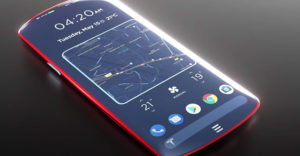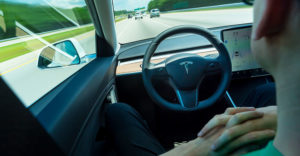Elon Musk presents himself as a free-speech absolutist. In other words, he believes everyone should have a voice.
He has certainly had issues with critics, brutally going after a whistleblower and a first responder, among others. So, like a lot of people in power, he feels strongly no one should take away his voice or someone that he agrees with, but if you aren’t in that group, maybe being quiet would be a far safer path.
Musk seems to have little control over what he says publicly, which would be problematic for any board he might serve on, so it was kind of surprising that Twitter offered him a board seat and, given this was what he appeared to want, even more surprising that he eventually turned that offer down.
More recently, it was announced that the deal killer was the background check, and Musk may have some nasty skeletons in his closet. Finally, just to add insult to injury, Musk announced he is going to do something else that is rarely successful and that he has never done before a hostile takeover.
Let’s talk about why Elon Musk likely got the offer, why he probably turned it down, and what will happen to his “hostile takeover” attempt.
We’ll close with my product of the week: a GPS tracking collar that is a godsend if you have a dog that likes to wander — or, like our Alaskan Klee Kai, simply decides it wants to visit the other side of the country.
Twitter’s Musk Problem
Having critics goes with any corporate structure, but the more visible and powerful the critic, the bigger the problem for the board. Musk is one of the most visible and powerful critics Twitter has, and while it is clear the Twitter board appreciates Musk’s capabilities and accomplishments, his public comments were creating problems for them they’d just as soon not have.
So, once Musk bought nearly 10% of the company, they couldn’t really ignore him anymore and could either fight his growing power or attempt to contain it. They chose the latter because board members typically must sign iron-clad NDAs to keep them from discussing the company and, particularly, board business outside of the boardroom. These NDAs are not only enforceable but are often written with large enough penalties to keep board members in line.
By getting Musk on board, they’d get the primary benefit of shutting down Musk’s active criticism of Twitter because that condemnation would violate his NDA, and they assumed that would keep Musk quiet.
This wasn’t a good bet, given the SEC had ruled that Musk couldn’t do social media without oversight, and Musk not only hasn’t conformed to that ruling, but he is also now attempting to have that order overturned.
Fighting the SEC like this is unusual for a CEO, but it does showcase that, despite Twitter’s NDA, Musk was likely going to speak out again, and that would have put Twitter and Musk in court with what would undoubtedly be a very painful, expensive, and damaging litigation process.
Musk’s Twitter-Tesla Problem
Musk clearly doesn’t like how Twitter moderates its forum. In particular, he seems to want Twitter to reinstate Donald Trump, which would be problematic for the platform and likely problematic for Tesla.
This is where it gets kind of interesting.
Tesla sells mostly in liberal states to liberals, but Musk presents himself as a conservative. Tesla buyers either have not figured this out, don’t care, or just overlook this. Conservative states and buyers tend to avoid electric cars, aren’t fans of government subsidies for them, and have been effective at locking Musk out of a few conservative states due to his very different non-franchised dealer sales model.
If Musk’s conservative leanings remain under the radar of liberals, he may be able to flip an increasing number of conservative car buyers and states. But should he upset the liberals, particularly as other car companies bring out electric cars, he could find that his existing customer base abandons him long before the new, conservative customer base ramps up.
Had Musk been successful at getting Trump reinstated, that would have likely been too big of a move for liberal buyers to ignore and potentially catastrophic for Tesla. But I doubt this even played into Musk’s thinking.
More likely, he was concerned about the board’s NDA and required background check. The board was likely concerned that he wouldn’t adhere to the NDA anyway, which means putting him on the board might only make things worse for both the board and Musk, which would remove the incentive for both parties to get this done.
Going forward, Musk is likely to continue to be a thorn in Twitter’s side, and he is likely to continue to tempt fate with his behavior, but that behavior shouldn’t now put the Twitter board at risk and land everyone into an embarrassing public display of dislike. Ironically, everyone is better off with Musk not on board.
But now he is attempting a hostile takeover, and that increases the risk for all parties.
Hostile Takeover
Hostile takeovers are when someone wants to buy a company that either isn’t for sale or doesn’t want to be sold to the buyer. It pits the existing management and employee base against the acquiring company and can result in regulatory bodies moving to prevent the acquisition — as the U.S. government did with the attempted hostile takeover of Qualcomm by Broadcom.
These efforts tend to be company killers because they create a cloud over the firm regarding its future which limits its ability to acquire and retain talent. It creates deep animosity between the employees and the acquiring entity, and defense can drain corporate resources making it very hard for the firm to compete for both during and after the event.
This will certainly raise the visibility of Musk’s efforts, and it should have an adverse impact on government support for Musk’s companies and on the existing base, largely liberal, of existing Tesla buyers. I expect when done, that this effort is likely to fail but become one of the most expensive hostile takeover attempts in history. Regardless if it succeeds or fails, a takeover attempt is likely to leave Twitter crippled unless governments move to block the effort.
Allowing someone like Musk with government contracts and a large retail automotive company to buy a communications platform as widely used as Twitter, in my view, could also be seen as both a threat to national security and competition — so there are grounds for the government to step in much like with Broadcom and Qualcomm.
Wrapping Up
At the heart of this drama is a lack of strategic thinking by all parties. The Twitter board didn’t consider Musk’s past behavior and the likelihood he wouldn’t conform to an NDA when they crafted their remedy. Musk isn’t thinking about what his actions will do to Tesla, but it does seem odd that he isn’t taking seriously the threat from the other automotive companies’ electric car efforts.
Now, with the move to do a hostile takeover, Musk escalates the fight and all but assures a negative response by the U.S. government and Tesla buyers, who are likely to object to this along with Twitter management and employees.
Musk operations tend to operate on what we term the “ragged edge” in sailing, successful but on the cusp of failure. This one move could push several over the edge, and doing this just months before a huge wave of electric competitors to Tesla is due to arrive would seem unusually foolhardy, even for Musk.
Whether this is the beginning of the end of Musk’s empire, or the end of the beginning, is still to be written. But the next few months should be interesting and painful, particularly for those working at Twitter. My heart goes out to them with the hope that this all ends better than it now seems likely to end.

Fi Series 2 Smart Dog Collar
We have a ton of animal parks near me. We’re in a resort town, so folks visit all the time. Both residents and visitors tend to have pets, and those pets get away on a weekly basis. I know this because not a week goes by without someone on Nextdoor or Facebook posting alerts that they have either found or lost a pet.
Often, the pet shows up days later dead, injured, or doesn’t show up at all, which can be extremely traumatic for the owner or the pet sitter. (Recently, a pet sitter was in an accident, and the dog she was caring for ran off, never to be seen again.)
To address this problem, many of us have either used Tile-like trackers that work with Bluetooth or more expensive GPS trackers. Tile-like trackers work reasonably well with cats when they are hiding in the house but, once they get out, not so much because a cell phone running the Tile tracker software must pick up the Tile to locate the pet, and there may not be a cellphone within miles of where the pet has gone in the wilderness.
GPS trackers are better. Of those, the best we’ve found is the Fi Series 2 Smart Dog Collar.

This device will locate your pet if it can pick up a GPS satellite and the collar remains on the animal (so it may not work if your pet is stolen). It is rechargeable, and a charge can last a week or more. The Fi smartphone software not only tracks the pet’s location, but it will also alert you if the pet leaves the vicinity of the house so you’ll immediately know you have a problem. It also tracks the pet’s exercise, much like a Fitbit might.
Granted, you do need to have the collar on the pet for it to work, but the collar has proven very accurate. While our dogs haven’t run off yet, it does give us peace of mind when we can’t see them to know they are home safe, particularly when we are traveling without them.
The Fi Series 2 Smart Dog Collar has been a godsend — and it is my product of the week.


























































